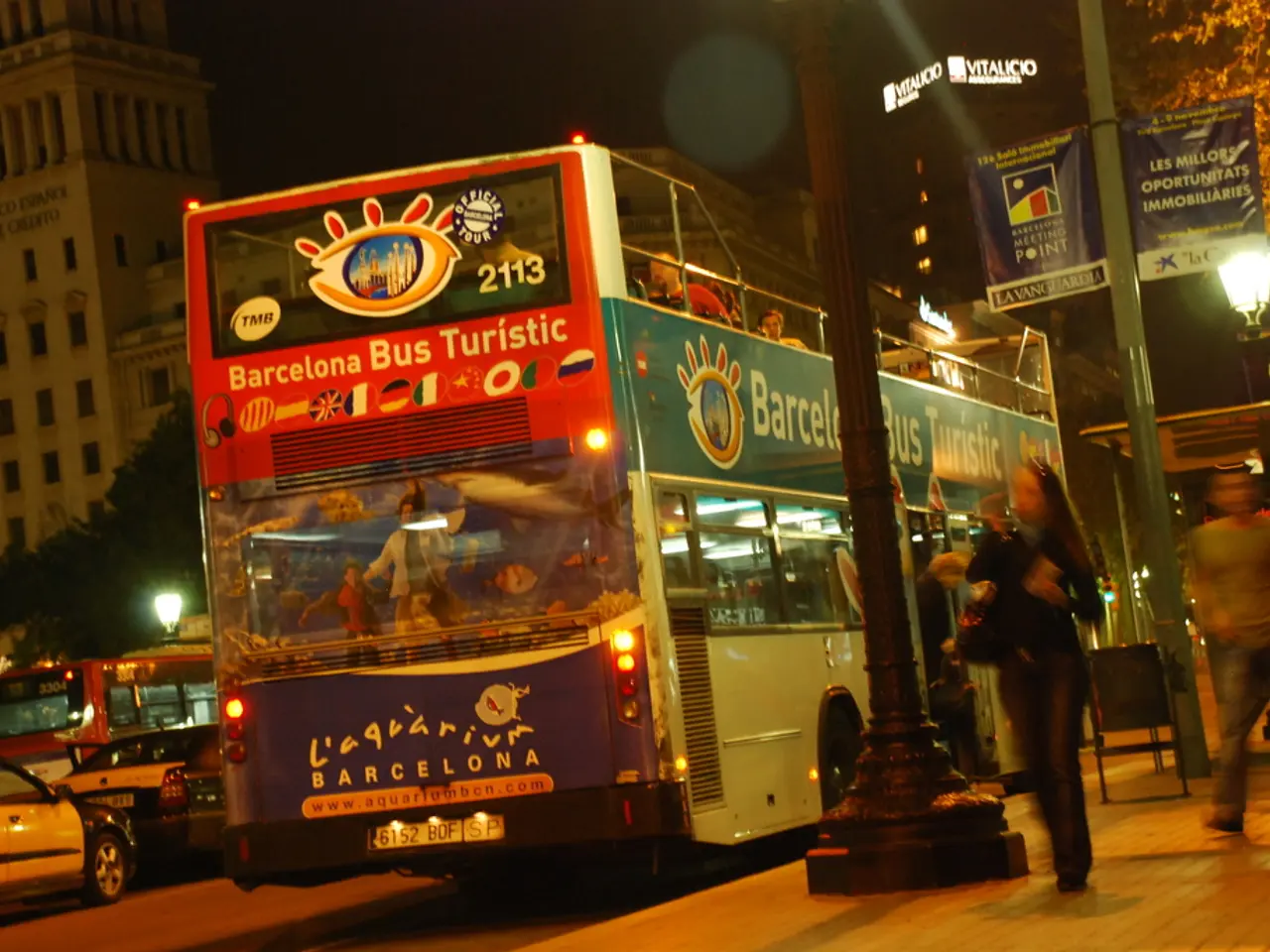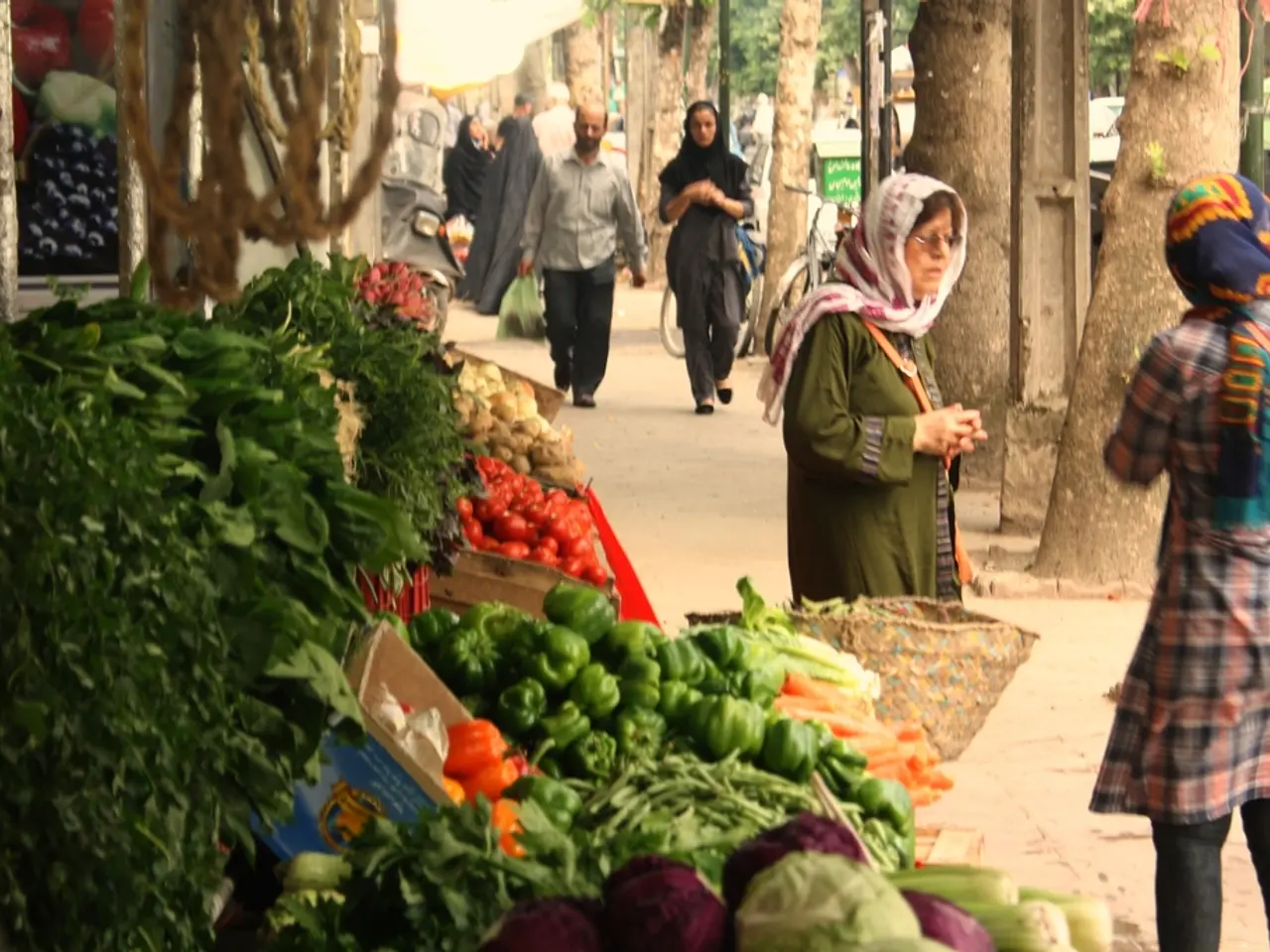"Supplementing the discussion on public transportation in Kaarst, Manfred Stranz ceases involvement but offers expertise on the matter"
In the picturesque town of Korschenbroich, a community bus serves a vital role that the public transport system cannot fulfill, catering to seniors in remote areas and mobility-impaired persons with six weekday rounds and two on Saturdays [1]. The same cannot be said for Kaarst, a neighbouring town, where a community bus proposal met with rejection despite the apparent benefits it could bring.
Manfred Stranz, a local resident in Kaarst, has been a staunch advocate for the community bus, believing it would significantly improve mobility for seniors and those with impaired mobility in remote areas [2]. In 2012, the association he founded surveyed and determined four routes for the community bus [3]. However, the city council of Kaarst ultimately did not approve the proposal [4].
The reasons behind the rejection remain unclear, but typical considerations include budget constraints, concerns about long-term sustainability, potential overlap with existing public transportation services, operational challenges, political decisions, and lack of community support [5]. Kaarst's press spokesman, Peter Böttner, suggested in 2017 that the example of Korschenbroich's community bus was not transferable due to greater distances between smaller districts in Kaarst [6].
Stranz believes misunderstandings and incorrect calculations were behind the city council's decision not to approve the community bus [7]. He calculated that with just one passenger per trip, the community bus would have covered its costs, amounting to around 35,000 euros per year [8]. Interestingly, the costs for the community bus in Korschenbroich, as calculated by its proponent, are significantly lower than the officially presented figures [9].
Despite the dissolution of the association for the community bus in 2017, Stranz continues to advocate for the service [10]. His persistence is commendable, as the community bus in Korschenbroich does not conflict with major public transport providers' routes [11]. It serves 70 stops, making a tangible difference in the lives of those it serves.
As the debate continues, it is clear that the community bus proposal in Kaarst has sparked passionate discussion and debate. The future of community transportation in Kaarst remains uncertain, but the dedication of advocates like Manfred Stranz ensures that the conversation will continue.
[1] Based on the information provided, it is not explicitly stated that the public transport system in Korschenbroich cannot fulfill the role of the community bus. However, it is inferred that the community bus serves a unique role not fully met by the existing public transport system. [2] Stranz's belief in the benefits of the community bus is based on his personal observations and the needs of the community he aims to serve. [3] The specific routes determined by the association are not provided in the information. [4] The exact date of the rejection is not specified. [5] These reasons for rejection are based on typical considerations in such cases, but it is not confirmed that they were the reasons for the rejection in Kaarst. [6] Böttner's statement suggests that the greater distances between smaller districts in Kaarst might make it more challenging to implement a community bus service effectively. [7] Stranz's belief that misunderstandings and incorrect calculations were behind the rejection is based on his interpretation of the decision-making process. [8] Stranz's calculation is based on his assumptions about the number of passengers and the costs involved. [9] The discrepancy between Stranz's calculations and the officially presented figures is not explained in the provided information. [10] Stranz's persistence despite the dissolution of the association demonstrates his commitment to the cause. [11] The information provided does not specify whether the community bus in Korschenbroich conflicts with any public transport providers. However, it is inferred that it does not, given that it serves a unique role not fully met by the existing public transport system.
- The rejection of Manfred Stranz's community bus proposal in Kaarst could potentially be addressed through a voluntary finance model, where local residents donate to cover the initial costs, ensuring budget constraints are not an issue.
- In light of the success of the community bus in Korschenbroich, sectors like transportation and finance within Kaarst's industry might want to explore the possibility of collaborating to establish a similar service, catering to seniors and mobility-impaired individuals in remote areas.




